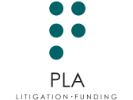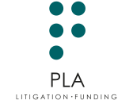Litigation Funding 2025
Spain
1. Legal and Regulatory Framework for Litigation Funding
1.1 Legality of Litigation Funding
In Spain, third-party litigation funding is not specifically regulated by law, but it is permitted under general civil and commercial legal principles, if the funding agreements adhere to applicable laws, public policy and the professional conduct rules for lawyers. The Spanish Civil Code (Articles 1526 et seq) and Supreme Court case law provide a legal basis for the transfer of credit rights, including those associated with legal claims. This framework is interpreted as allowing third-party funding arrangements within the Spanish legal system.
1.2 Rules and Regulations on Litigation Funding
Spain does not currently have specific legislative or regulatory provisions governing third-party litigation funding. However, it is regulated by general principles of contract law, particularly the Spanish Civil Code and Commercial Code, which apply to private funding agreements. These laws ensure that any funding agreement complies with contractual norms and respects public order and professional conduct requirements.
Future EU Regulation
On 13 September 2022, the European Parliament adopted a resolution calling on the European Commission to present a proposal for a Directive to regulate litigation funding. Among other relevant issues, the future Directive should address:
- the creation of national bodies for the authorisation and supervision of litigation funders;
- the establishment of capital requirements;
- transparency and the prevention of conflicts of interest; and
- a limitation on the remuneration that these entities can obtain.
This initiative could be an important step towards the regulation of an increasingly important industry in the EU legal sector, although the content must be adapted to the reality of the industry.
Consumer Class Actions
Although the transposition process is advanced, Directive 2020/1828 of the European Parliament and of the Council of 25 November 2020 on representative actions for the protection of the collective interests of consumers and repealing Directive 2009/22/EC has not yet been transposed in Spain. There is speculation as to how the Spanish legislation will transpose Article 10 of Directive 2020/1828 on the financing of representative actions to obtain compensatory measures, and whether it will finally include some kind of regulation on such relevant aspects of litigation financing as the obligation to provide the financing contract to the judicial proceedings, or on the remuneration that can be obtained by the financiers.
1.3 Non-Legal Rules
Codes of Conduct
For lawyers, professional conduct is governed by various ethical standards, including the General Statute of the Spanish Legal Profession, the Code of Ethics of the Spanish Legal Profession and the regulations set by local bar associations. These rules are not designed to regulate third-party litigation funding, but they do apply to lawyers advising clients in relation to third-party litigation funding, covering matters such as:
- legal privilege;
- independence;
- the avoidance of conflicts of interest;
- publicity; and
- relationships with clients, opposing parties and other legal professionals.
At the European level, the European Law Institute (ELI) recently published the Third-Party Litigation Funding Principles (ELI Principles), which provide a voluntary, non-binding ethical framework for third-party litigation funding. Although not legally enforceable, the ELI Principles are an important step towards harmonising practices across European jurisdictions, addressing key areas such as:
- the transparency of funding agreements;
- the independence of the funder and the lawyer; and
- conflicts of interest.
Rules of Arbitration Institutions
In the context of arbitration, institutional rules have started to incorporate provisions related to third-party funding. Notably, the Spanish Court of Arbitration Rules and the Madrid International Arbitration Center Rules require the disclosure of any third-party funding arrangements. These rules enhance transparency by mandating that parties inform arbitrators and other parties about any funding received, including the identity of the third-party funder. Such provisions are designed to avoid any potential conflicts of interest and ensure fairness throughout the arbitration process.
1.4 Consumer Protection, etc
Regarding consumers, the future transposition into Spanish law of Directive 2020/1828 on representative actions for the protection of the collective interests of consumers will surely mark a turning point in class actions in Spain, and this future regulation is expected to regulate the participation of litigation finance funds in such actions.
In the meantime, any contract entered into with consumers (including contracts for the financing of litigation that may be entered into with them) must comply with Spanish consumer protection legislation (in particular the General Law for the Defence of Consumers and Users), which regulates the conditions that a contractual clause must have in order to be declared unfair and the consequences that such unfairness may entail, among other matters.
1.5 Unlawful Terms
In Spain, certain terms commonly found in funding agreements in other jurisdictions may face heightened scrutiny or risk being modified or declared unlawful by Spanish courts or tribunals. This is due to the interaction between Spanish civil law principles, public policy considerations and the evolving legal framework surrounding third-party funding.
The main term that may be challenged is the sale of litigation credits, in accordance with Article 1535 of the Spanish Civil Code, which could apply to certain aspects of the industry. Under this article, if a litigated credit is sold to a third party, the debtor has the right to extinguish it by reimbursing the assignee the price paid, as well as the costs and interests.
Another term at risk is excessive control by funders. Clauses that grant funders significant control over litigation strategy, including decisions on settlement, procedural steps or litigation direction, could be contested for infringing the autonomy of the claimant and their legal counsel. Spanish law places a strong emphasis on the independence of both claimants and lawyers in conducting litigation. Provisions that appear to give undue influence to funders could be seen as contrary to professional conduct rules and public policy, potentially making them unenforceable.
Disproportionate profit-sharing is another term that may raise concerns. Agreements with consumers that allocate an excessively large portion of the litigation proceeds to the funder could be contested due to fairness and proportionality issues.
Penalty clauses and termination fees are additional terms that could face challenges. Clauses imposing heavy penalties or excessive termination fees on claimants wishing to exit or modify the funding agreement, or replace the funder, could be considered unenforceable. Spanish contract law prohibits clauses that create an unjust imbalance between parties or impose penalties disproportionate to the actual harm suffered. Such provisions may be struck down as they violate the principles of fairness and good faith.
Broad confidentiality obligations are another area of concern. Confidentiality clauses that are overly restrictive, preventing claimants or their lawyers from disclosing the existence of a funding agreement – even when required by law or court order – could be challenged.
Excessive control over settlement is another term that could be contested. Clauses granting funders the ability to dictate whether the claimant accepts or rejects settlement offers could undermine the claimant’s autonomy and the lawyer’s duty to act in the client’s best interests. Spanish professional conduct rules require lawyers to act in their clients’ best interest, free from external influences. Provisions that allow funders to control settlement decisions could violate these ethical obligations, rendering them unenforceable.
In addition, provisions allowing funders to support multiple claims against the same defendant or engage in funding with competing interests in related proceedings may create conflicts of interest. Spanish courts may closely scrutinise such provisions to identify potential ethical violations or procedural unfairness.
1.6 Disclosure Requirement
In Spain, there is no automatic obligation to disclose a third-party litigation funding agreement in civil court proceedings, nor is there a specific requirement to disclose it to the opposing party or to the court. Unlike jurisdictions such as England and Wales or the United States, Spain does not have an established practice of document disclosure or inspection. The parties involved in a case may only request the production of documents from the opposing side if these documents are directly relevant to the subject matter of the dispute or constitute essential evidence.
The Spanish courts typically exercise discretion when it comes to ordering document production, and are generally reluctant to compel the disclosure of documents unless such documents are deemed crucial for resolving the case. Based on this general approach, it would be unusual for a Spanish court to order the disclosure of a third-party funding agreement, particularly in the absence of any established judicial precedent on the matter.
However, this position may evolve with the transposition of Directive 2020/1828 on representative actions for the protection of the collective interests of consumers, which could introduce new obligations for transparency in cases involving consumers or collective redress claims. Specifically, courts may be required to review funding arrangements to ensure they are fair and transparent, thus potentially impacting disclosure practices in such cases.
In the context of commercial arbitration, the situation is different: the process is more flexible, and arbitrators generally have broader discretion to order the disclosure or production of documents. To promote transparency and avoid conflicts of interest, some soft-law instruments and institutional arbitration rules in Spain require the disclosure of third-party funding agreements. The Spanish Arbitration Club Code of Good Arbitration Practice, the Arbitration Rules of the Spanish Court of Arbitration and the Madrid International Arbitration Center Arbitration Rules explicitly state that a party that has received third-party funding must inform both the arbitrators and the opposing party about the existence of the funding arrangement and disclose the identity of the funder.
2. Adverse Costs and Insurance
2.1 Adverse Costs
In Spain, there is no established legal framework or case law that holds third-party litigation funders liable for adverse costs. Under Spanish law, only the parties directly involved in the litigation are typically responsible for any adverse costs incurred.
The standard structure of a litigation funding agreement often aligns with the concept of a silent partnership under Spanish law, giving the funder (as the silent partner) significant protection against claims by third parties. According to Article 242 of the Spanish Commercial Code, silent partners are shielded from personal liability for the actions or obligations of the business or litigation, including adverse costs. Consequently, a litigation funder cannot be held liable for adverse costs awarded by the court.
This principle applies irrespective of the terms agreed upon in the funding contract. Even if the agreement specifies that the funder assumes the risk of adverse costs, the doctrine of privity of contract prevails. This means that only the parties to the funding agreement – ie, the claimant and the funder – are bound by its terms. The court cannot compel the funder to pay adverse costs because the funder is not considered a party to the litigation itself.
The adverse costs are generally calculated based on the actual costs incurred by the prevailing party, including legal fees, court costs and other litigation-related expenses. The determination of these costs is not governed by a fixed tariff but is instead subject to judicial discretion. Judges assess reasonable costs based on factors such as the complexity of the case, the time invested by legal professionals and the procedural actions required.
In some cases, courts may calculate adverse costs as a percentage of the claim's value, particularly in larger or more complex cases. However, there is no statutory or uniform percentage applicable across all cases. Courts are guided by the principle of proportionality, which ensures that the awarded costs are reasonable relative to the nature and scope of the dispute. This approach is further informed by non-binding guidelines issued by various Spanish bar associations, which provide recommendations to ensure fairness in cost assessments.
2.2 Security for Costs
The Spanish Civil Procedure Law does not provide an automatic or explicit mechanism for ordering a claimant or a third party to provide security for the defendant's costs. In particular, the Spanish Civil Procedure Rules lack provisions allowing a defendant to apply for security for costs in civil litigation. Furthermore, the application of interim injunctions – which could potentially be used to secure costs – is typically limited to claimants rather than defendants.
As a result, ordering security for costs is not a standard or generally available option in Spanish civil litigation. Courts are unlikely to require a claimant or a third-party funder to provide such security unless exceptional circumstances warrant it. However, such circumstances are rare under the current procedural framework.
In contrast, the landscape is more flexible in the context of commercial arbitration seated in Spain. The Spanish Arbitration Act grants arbitrators discretion over procedural matters, including the authority to order security for costs. Whether such an order is made depends on various factors, such as the parties' agreement, the applicable institutional arbitration rules and the arbitrator's discretion.
In practice, however, security for costs is not a common or standard procedure in Spanish arbitration. The lack of settled case law or a uniform approach means that decisions are typically made on a case-by-case basis. Although some international arbitrators may assume they have the authority to decide on security for costs, such applications remain rare in Spanish arbitration proceedings.
Given that the Spanish Civil Procedure Rules do not contemplate security for costs, the involvement of a third-party funder generally does not influence the court’s approach in this regard. Third-party funding remains a relatively new concept in Spain, and its effect on procedural issues such as security for costs has been minimal thus far. Courts are unlikely to view the presence of a third-party funder as a justification for deviating from their established practice of not ordering security for costs in civil litigation.
2.3 Insurance
After-the-event (ATE) insurance is legally permitted in Spain, although it has not yet achieved widespread adoption. This type of insurance, which protects claimants from the financial risk of adverse costs in litigation, is available for those who wish to mitigate the potential impact of losing a case. Despite its availability, ATE insurance has not become a standard tool in Spanish litigation, although it is developing in a positive way. One key reason is the relatively moderate risk of adverse costs in the Spanish legal system, which makes such insurance less cost-effective for most claimants.
However, there is growing interest in ATE insurance, particularly in high-value or complex disputes. This trend is especially apparent in areas like international arbitration, portfolio litigation and mass litigation, where the financial stakes and the risk of adverse costs are higher. In addition, as third-party litigation funding becomes more prevalent in Spain, the use of ATE insurance is increasingly being explored as a complementary mechanism to enhance financial security for both funders and claimants in the event of an unfavourable outcome.
3. Lawyer Ethics
3.1 Alternative Fee Structures
In Spain, lawyers have the flexibility to adopt various alternative fee structures instead of the standard hourly billing model. One commonly used structure is fixed fees, where a predetermined amount is agreed upon for the entire case or a specific legal service, regardless of the time and effort involved. This approach is typically applied in cases where the legal work can be clearly defined from the outset, such as drafting contracts or handling straightforward disputes. Fixed fees are especially favoured in transactional or administrative matters where the scope and complexity of the case are predictable.
Another alternative is success fees, which are not as prevalent in Spain as in other jurisdictions but still play a role. Lawyers often combine a fixed or hourly fee with a success fee, which is a pre-agreed fixed amount or a percentage of the recovery (eg, damages awarded or settlement). This structure is designed to incentivise lawyers to achieve favourable outcomes, and is often tied to specific milestones or defined successes rather than simply increasing hourly rates.
Spanish law imposes certain restrictions and requirements on fee arrangements to maintain fairness and ethical standards. One key principle is the prohibition of excessive fees. Lawyers must ensure their fees are reasonable and proportionate to the services provided, avoiding situations that could create an imbalance of power between parties, particularly in cases involving vulnerable or unrepresented clients.
Ethical considerations also play a significant role in shaping fee structures. Lawyers are bound by the ethical standards of the Spanish Bar Association, which require them to maintain independence and prioritise their clients’ best interests. Fee arrangements must not compromise these principles nor create conflicts of interest that could affect the lawyer’s professional judgement.
Finally, transparency and informed consent are essential in any fee arrangement. Lawyers must ensure that clients are fully aware of the terms, conditions and potential financial implications of the chosen fee structure. This is particularly important in cases involving success or contingency fees, as clients must understand their obligations and the possible outcomes of their cases.
3.2 Fee Sharing
In Spain, third-party funders that are not regulated law firms face significant restrictions when it comes to sharing fees with lawyers. These restrictions are set forth in the Code of Ethics of the Spanish Bar Association and are designed to protect the independence of legal professionals and ensure ethical standards are upheld in the practice of law.
According to the Code, lawyers cannot divide or distribute fees with non-lawyers, except in certain prescribed circumstances, such as collaborations between lawyers, or when lawyers work within authorised professional associations. Third-party funders, which are typically non-lawyers, are therefore prohibited from sharing in lawyers' fees.
Although this rule does not have the force of law, it is of paramount importance that lawyers adhere to it, as compliance with the code goes beyond mere professional ethics. Deliberate and repeated non-compliance with these ethical rules may lead to warnings, reprimands and disciplinary sanctions of varying severity, including suspension or expulsion from the respective bar association.
3.3 Equity Ownership
Both the national regulations governing professional companies and the General Statute of the Spanish Legal Profession accept the grouping of professional and capitalist partners for the practice of law.
However, these regulations establish specific requirements for this type of grouping. Firstly, at least the majority of the capital and voting rights, or the majority of the company assets and the number of partners in the case of non-capitalist companies, must belong to professional partners. In addition, the decisions made by the administrative bodies must be made with a majority participation of professional partners.
Although the regulations allow for the existence of non-professional partners, their participation in the company is strictly limited. These partners cannot control the company nor interfere in the practice of the profession. Their participation is subordinate to compliance with the established majority rules, guaranteeing that professional ethics and deontology are not compromised.
4. Taxes
4.1 Taxes on Legal Fees
In Spain, legal fees are subject to 21% VAT (Value Added Tax) on the total amount payable by clients for legal services. All legal services provided by lawyers are taxed at this standard rate, which applies to the full amount charged for the work performed. This makes VAT a significant consideration for both lawyers and their clients when calculating the total cost of legal services.
Businesses that are VAT-registered have the advantage of being able to reclaim the VAT paid on legal fees, provided the services are related to their taxable activities. This is managed through the input tax mechanism, allowing businesses to offset the VAT they pay on legal services against the VAT they collect from their own customers. This ensures that VAT does not become an additional financial burden for businesses using legal services as part of their operations.
VAT is non-reclaimable for private clients and entities that are not VAT-registered, such as individuals. This means that the tax is added to the total fee, and they bear the full burden of the 21% VAT as an additional cost. This distinction makes legal services relatively more expensive for non-business clients compared to VAT-registered businesses.
4.2 Withholding on Payments to Offshore Jurisdictions
The withholding on payments to offshore jurisdictions will depend on the investment structure. Case-by-case analysis is needed.
PLA Litigation Funding
Calle José Bardasano Baos nº 9 Planta 7
Madrid 28016
Spain
+34 91 907 02 87
info@pla-spain.com pla-spain.com
Trends and Developments
Litigation Funding in Spain: an Overview
Global industry growth
In 2024, litigation finance continued to establish itself as a strategic sector in dispute resolution, not only because of its steady growth, but also because of its increasing importance in the global legal system. In financial terms, the industry was estimated to be worth USD17.2 billion at the beginning of 2024, reflecting the increasing demand for external funding for litigation and arbitration. This growth is a clear indication that litigation funding remains an attractive option for both companies and individuals seeking an alternative way to access justice.
From 2018 to 2022, the industry grew at a compound annual rate of 7.5%. However, forecasts point to an even greater increase in the coming years, with estimates suggesting that the industry will grow at a compound annual growth rate of 9.6% by 2033. This projected increase is largely due to the growth in intellectual property (IP) and environmental litigation, which have become key sectors for litigation funders due to the increasing complexity and economic value of the cases involved.
More developed markets, such as the US, continue to lead global growth. However, there is also significant growth in emerging markets such as Germany, India, China and Japan. These countries are seeing increased adoption of litigation finance due to their increasingly sophisticated legal systems and the growing need to fund complex cases.
The situation in Spain
The litigation funding market in Spain has experienced significant growth, establishing itself as an increasingly demanded instrument, particularly in complex commercial and civil litigation. Although public data on the industry remains limited, there has been a notable increase in market activity, driven by a growing awareness of the benefits of this model and increasing demand in key sectors.
This growth has also been facilitated by a regulatory framework that, while still under debate as to its future direction, allows litigation funds to operate efficiently and safely. The absence of strict restrictions has encouraged new players to enter the market and allowed funds to consolidate their position as a legitimate and effective means of financing complex and costly litigation.
The Spanish litigation funding market is currently undergoing a period of consolidation. Forecasts for the coming years point to sustained growth, supported by a wider understanding of the practice as a viable solution to mitigate legal costs and ensure access to justice, particularly in high-value cases.
European Commission mapping on litigation funding
In 2024, the European Commission (EC) undertook a mapping exercise of the litigation funding industry, reflecting a growing interest in regulating the practice at EU level. The EC has traditionally been cautious about litigation funding, but the rise of this business model and concerns about transparency and ethics have prompted a closer examination.
The main objective was to assess the impact of litigation funds on access to justice and the fairness of judicial proceedings. In doing so, the EC examined several key issues, such as the transparency of the relationship between funders and litigants, the management of conflicts of interest and the protection of the rights of the parties involved.
The reactions of industry players will shape the direction of the regulatory debate in 2025. Litigation funder associations have taken a strong stance in favour of self-regulation, arguing that internal mechanisms already exist to ensure transparent and ethical operations. In their view, excessive regulation could discourage participation in highly complex or high-risk cases, thereby limiting access to justice for many parties.
Law firms are more cautious. While recognising the importance of establishing minimum regulatory safeguards, they stress the need not to compromise the autonomy of litigants. In their view, an overly strict regulatory framework could discourage co-operation between funds and law firms, thereby reducing litigants' access to financial resources in cases that are lengthy or costly.
On the business side, positions are more pragmatic. Businesses have shown an interest in a balanced framework that offers protection to both funders and claimants, but have warned against the imposition of regulatory burdens that could reduce competition and stifle innovation in the sector. They also insist on the need to avoid market concentration in a few large funds, which could limit the options available to litigants.
The mapping exercise is a first step towards possible harmonised regulation of litigation funding in the European Union, a key trend for 2025. The EC is seeking to strike a balance between promoting access to justice and preventing potential abuses in the sector.
Failed attempt to transpose EU Directive on representative actions
In Spain, the draft law transposing Directive (EU) 2020/1828 on representative actions, which aims to facilitate the protection of the collective interests of consumers, failed to make progress in 2024. This failed attempt at reform highlights the tensions and difficulties inherent in the regulation of litigation funding, particularly regarding the regulation of class actions, a key area in which litigation funds play an important role.
The Bill (Proyecto de Ley) was perceived by litigation funds as a barrier to the growth of the sector, as it introduced several requirements that could have limited the ability of funders to intervene in important class actions. Litigation funds and law firms argued that the proposed restrictions could have complicated funding processes, making access to justice more difficult for consumers by making the process more expensive or creating additional formal barriers. In addition, they warned of the risk that overly restrictive regulation would reduce opportunities for collaboration between litigation funds and lawyers, which in the long term could have reduced opportunities for justice for those affected by anti-competitive practices or corporate malpractice.
Although the Bill was eventually dropped in 2024, the transposition of the Directive remains a hot topic on the Spanish political and legal agenda. It is likely that new reform initiatives will be presented, but with a more balanced approach that seeks to reconcile the needs of the market with the requirements of consumer protection.
The industry regulation debate
The debate about the regulation of litigation finance will undoubtedly be a hot topic in 2025. In recent years, the debate has intensified as to whether there should be strict regulation or whether the industry should be able to self-regulate. This debate has been fuelled by both developments in the sector and regulatory efforts in the European Union, which have created an uncertain landscape.
Those in favour of self-regulation argue that the litigation finance industry is mature enough to have internal mechanisms in place to ensure transparency and integrity. They contend that there are already best practices in place to manage transparency and conflict of interest risks, and that effective self-regulation would allow for greater flexibility and innovation without the burden of strict regulation. Influential publications such as the European Law Institute's “Principles Governing the Third-Party Funding of Litigation” support this position with guidelines on transparency and conflict management.
On the other hand, those in favour of stricter regulation believe that clear and universal rules are needed to protect consumers and litigants, especially in complex litigation. In November 2024, several business organisations published a manifesto calling for the regulation of litigation funding in Europe, criticising abusive claims and the risk of speculative litigation. They argue that, without clear rules, some market players could act irresponsibly, jeopardising justice and the rights of those affected.
However, the European Consumer Organisation (BEUC) has also published a statement in favour of litigation funding, stressing that litigation funds bring benefits to consumers and fill the existing funding gap. BEUC argues that criticisms of litigation funds are unfounded, and that the main risks are already addressed in Directive 2020/1828.
This debate was also at the heart of the discussions on the implementation of the European Class Actions Directive, where the tensions between self-regulation and strict regulation were highlighted. While the attempt at transposition in Spain in 2024 was unsuccessful, discussions on appropriate regulation continue at the European level, which could have an impact on the industry at the national level.
Looking ahead, the regulation of litigation funding is likely to remain a hot topic, with key players seeking a balance between increased regulation to protect consumer rights and self-regulation to allow the industry to continue to grow and develop.
New legislation in Spain and its impact on litigation funding
Spain has recently introduced new legislation aimed at modernising its judicial system and making it more accessible and efficient. These changes are expected to have a significant impact on the market as they affect the procedural landscape.
Organic Law 1/2025 on Procedural Efficiency requires the prior use of alternative dispute resolution (ADR) mechanisms. Under this law, parties are required to attempt to resolve disputes through negotiation activities, including mediation, private conciliation, confidential binding offers, independent expert assessments, collaborative law and restorative justice. These mechanisms are intended to encourage parties to reach agreements in good faith, either independently or with the assistance of a neutral third party.
While the promotion of ADR aims to reduce the need for lengthy and costly litigation, it could also lead to increased upfront costs for claimants and potentially delay the time required to obtain a judgment. This dynamic may reduce the demand for litigation funding in some cases, but in others it may increase the financial burden on parties, creating new opportunities for funders to assist.
Royal Decree-Law 6/2023 introduces procedural innovations, including the concept of a leading proceeding (pleito testigo), which allows the suspension of similar cases until a “leading” case is resolved; the resolution of this leading case then serves as a precedent for the others. This mechanism is designed to streamline dispute resolution, reduce the workload in the judicial system, and potentially shorten the timeline for resolving claims.
In summary, these new laws represent a significant shift in the Spanish legal framework and are expected to have a notable impact on the litigation funding market.
Key CJEU rulings in 2024: hydrocarbons and limitation periods
The Court of Justice of the European Union (CJEU) delivered two important judgments in 2024 that will have a significant impact on the European legal and business landscape and the litigation finance industry.
First, in Case C-743/22, the CJEU ruled that Spanish legislation on hydrocarbons infringed the Energy Tax Directive by allowing the Autonomous Communities to set different tax rates for the same product depending on the area of consumption. This practice was considered contrary to the principles of tax harmonisation, except in cases specifically provided for in Community legislation.
The ruling had an immediate impact in Spain. The Second Section of the Administrative Chamber of the Supreme Court applied this doctrine in a series of important rulings (4712/2024, 4713/2024 and 4714/2024), which declared such differentiated regional taxes null and void. These rulings not only affected the finances of several autonomous communities but also opened the door to possible massive claims for undue revenues. This scenario has attracted the interest of the litigation finance industry, given the size and complexity of the potential cases.
On the other hand, in the field of competition law, the Grand Chamber of the ECJ issued a landmark ruling in case C-605/21 regarding the calculation of limitation periods. The court determined that the limitation period begins to run from the moment the affected party gains actual knowledge of the infringement. This approach effectively extends the timeframe for filing claims, allowing cases that were previously considered time-barred to become actionable. This change is expected to significantly increase the number of litigable cases, particularly in strategic sectors such as technology and energy.
At the national level, a pending procedure in Spain has referred questions to the CJEU regarding the criteria for calculating limitation periods. The aim is to ensure greater clarity and consistency in the application of these rules across the European Union, which could further shape the litigation funding landscape in Spain and beyond.
Both pronouncements not only underline the dynamism of European jurisprudence but also reflect the complexity of current litigation and the opportunities it creates for litigation funding. The interplay between national and EU legal evolutions will continue to be a key factor in the development of the sector, creating new opportunities for litigation funders across Europe.
Launch of litigation insurance in Spain
There is an emerging market in Spain related to litigation insurance. The most notable products include:
- after-the-event (ATE) insurance, which covers the costs of litigation in the event of a loss;
- judgment preservation policies (JPP), which insure court judgments against the risk of non-payment or appeal; and
- insurance to cover the costs of appeals in protracted litigation.
However, this emerging market is not without its challenges. In the United States, a number of insurers have decided to exit the JPP business following recent adverse court rulings that have called into question the financial viability of such products.
The introduction of litigation insurance in Spain is also creating a new dynamic in the relationship between insurers and litigation finance funds. On the one hand, both sectors can act in a complementary manner, combining funding to cover litigation costs with specific coverage to mitigate additional risks. On the other hand, a possible competitive relationship is envisaged, especially if litigation funds decide to integrate insurance products into their services, positioning them as direct alternatives. This scenario raises the debate as to whether litigation insurance and litigation funding are truly complementary or whether, in certain cases, they could be considered competitors in a market that is still in the process of consolidation.
Increasing complexity of litigation-backed transactions
The litigation finance market continues to move towards more sophisticated models, driving the adoption of innovative and increasingly complex financial transactions.
One of the key trends is the growth of secondary transactions between funds. In these transactions, a fund sells stakes in previously funded litigation, allowing new players to diversify their investment portfolios and allowing the original funds to free up capital for new opportunities. Litigation portfolio financing – a strategy that combines multiple cases into a single structure and reduces overall risk by diversifying outcomes – is also growing in importance.
Another important innovation is contingency fee monetisation. This model allows law firms to generate immediate liquidity by anticipating future revenues based on the success of cases. In this way, law firms can optimise their cash flow without having to wait for the final resolution of a case.
Litigation funds also play a strategic role in the expansion and strengthening of law firms. Of particular relevance in this respect is the judgment of the CJEU (Grand Chamber, 19 December 2024, Case C-295/2023) that validates the financing of law firms by funds, provided that professional independence is guaranteed. This ruling is an important precedent that consolidates the role of funds as key players in the development of the legal sector.
Finally, debt-free financing for companies is a notable innovation in the market. This model allows companies to obtain the necessary resources to face major litigation, such as patent or product liability litigation, without adversely affecting their balance sheets. This approach is particularly attractive to companies in capital-intensive industries with high exposure to legal risk.
Taken together, these trends reflect a litigation finance market that is not only maturing but also diversifying and adapting to the specific needs of different sectors and players.
The impact of artificial intelligence on litigation funding
As expected, artificial intelligence (AI) is making its way into the litigation funding industry, driving transformative advances in case assessment and operational efficiency. Predictive analytics tools, powered by machine learning algorithms, are being deployed to help funds assess the likelihood of case success with remarkable accuracy before committing resources. This data-driven approach not only minimises investment risk but also maximises potential returns, setting a new standard for strategic decision-making.
The impact of AI goes beyond efficiency improvements. It enables the creation of more sophisticated funding structures, redefining traditional business models. With reduced margins for error, funds are increasingly willing to take on riskier, more complex and costly cases, using AI to effectively manage these challenges and explore new market opportunities.
Looking ahead, the role of AI in litigation funding is expected to expand significantly. Its integration as a critical tool will streamline operations, enhance investment strategies, and address the ethical and regulatory challenges that arise from its use. As this disruptive technology continues to evolve, it will reshape the litigation finance landscape, driving greater innovation, efficiency and adaptability in the years to come.
PLA Litigation Funding
Calle José Bardasano Baos nº 9 Planta 7
Madrid 28016
Spain
+34 91 907 02 87
info@pla-spain.com pla-spain.com






